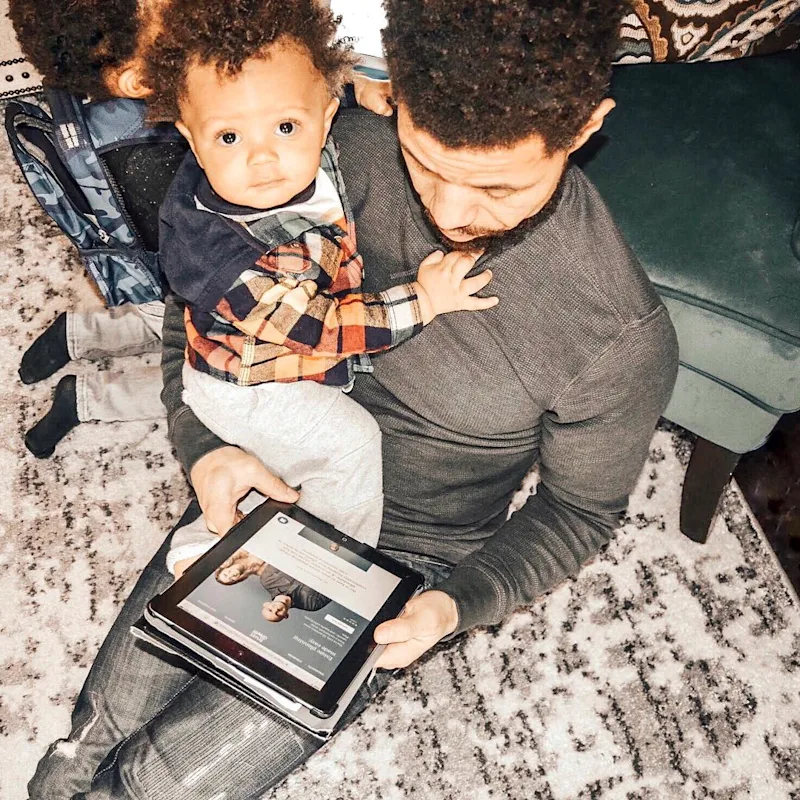
How to Support Your Co-Worker During Grief
Is one of your co-workers grieving the loss of a loved one? Read on to learn the do’s and don'ts of supporting a co-worker who is experiencing grief.

By Staff Writer
Trust & Will
Over the last year, we have all gotten a little closer to our co-workers. Essential and front-line workers have bonded over staying safe in unprecedented times. Those using Zoom have regular intimate glimpses into their colleague's homes and private lives, from not-so-camera-ready bedrooms to kids loudly demanding their parent's attention mid-meeting. Our colleagues: they're just like us.
And, just like us, our co-workers have had some tough days this year. We've all tried to keep it together when life feels like it's falling apart. Grief is universal. We have all experienced it, and we will all experience it again. What's important for us to remember is that we are human, and we're just doing our best.
If you're wondering how to best support your co-worker during grief, whether you're on the front lines of the pandemic, just got back into the office, or are working from home, Trust & Will, the leading voice in online Estate Planning, has you covered.
Keep Your Condolences Simple
When we're working, we're used to leaving our personal lives at the door. In fact, that exact phrase is so ingrained in our work culture that it's common for many employers to use it when training new workers.
Because so many people learned to leave their personal lives at the door when they walk into work, a grieving co-worker may not be so forthcoming about their recent loss. They may only tell one or two people they are close to. In some cases, they may only tell someone what is going on out of a sense of obligation if their work performance is suffering.
A grieving colleague may not feel comfortable with the entire office knowing they're going through a tough time. So, when you have a working relationship with someone who has confided in you that they recently lost someone close to them, it can be difficult to know what is appropriate when responding. What do you say? If you're speaking to them in person, do you hug them? If you also lost someone this year, do you tell them? And will it bring them comfort or make it seem like you are making their loss about yourself?
First of all, take a deep breath. Death is a touchy subject. Vulnerability can make us feel uncomfortable, but it can also bring us a lot closer together.
When your co-worker trusts you with the news that they have lost someone, tell them that you are sorry to hear of their passing. If you have a moment to chat with them, ask if there is anything that you can do for them. Let them know that when they're ready to talk, you would love to hear about their loved one.
When someone dies, we shouldn't stop talking about them or redirect the conversation when they come up. Talking about our loved ones who have passed helps to keep their memory alive while healing us.
As for whether or not you should offer a comforting hug, we'd err on the side of no on that one. While it may be an innocent gesture, if we learned anything this past year, it's that we can still be there for the people in our lives while maintaining a little physical distance.
On the flip side, it's important to recognize when you might not be the best person to help a colleague through their grief. While it is our nature to want to help someone who is hurting, sometimes we're not always the best equipped. Sometimes taking the pressure off of a grieving colleague is giving them permission not to talk about their loss. To make small talk and ask if they're enjoying the weather we've been having.
Small Acts of Kindness for a Grieving Co-Worker
While it may be from a place of genuine thoughtfulness, no one likes receiving a condolence card signed by everyone in the office. What may seem like a kind gesture often falls flat, like an obligation for both the person filling out the card and the one receiving it. And if there's something that someone grieving doesn't want to feel, it's like a task or an errand.
If you are close to a co-worker who has experienced a loss, you might want to give them a small gift. Nothing fancy or expensive. Just a little token to let them know you're thinking about them.
While a card signed by the whole office may not bring comfort to a colleague, a thoughtful card with a personalized message from a kind colleague may. You might also pair that with a bottle of wine if you know that they are a wine collector or an indulgent snack.
The key to a great small gift is one that they wouldn't buy themselves, even if it's cheap, simply because it would be a splurge. Sometimes we deserve things we may not need, but bring us comfort anyway.
If the person your colleague lost is someone you've heard about, tell them that you remember hearing about their loved one. Let them know that you remember them and how they spoke about them. If you can recall a particular story or fun fact, relay it back to your co-worker. It will let them know that you listened to them and that their story or anecdote left an impression on you. People want to know that those they loved, who loved them right back, mattered and that they will be remembered.
Planning for the Future with Trust & Will
Seeing someone grieve the loss of a loved one can be a wake-up call. If your co-worker shared details with you about managing their loved one's Estate after their death, it makes sense that you would begin thinking about your own family's Estate Plans or even your own.
With Trust & Will, you can get started on your Will or Trust in minutes. Whether you're starting a new Estate Plan or updating existing documents, they deliver state-specific online documents created by expert lawyers. Get started today!
Last updated: March 21, 2025



